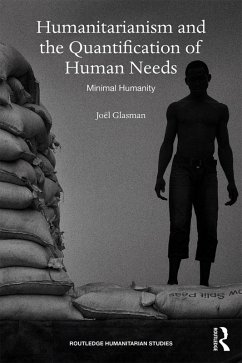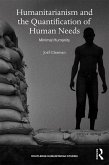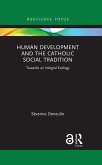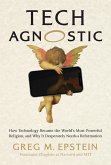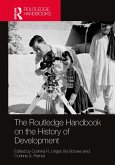Dieser Download kann aus rechtlichen Gründen nur mit Rechnungsadresse in A, B, BG, CY, CZ, D, DK, EW, E, FIN, F, GR, HR, H, IRL, I, LT, L, LR, M, NL, PL, P, R, S, SLO, SK ausgeliefert werden.
"Combining a provocative perspective with a meticulous eye for detail, Joël Glasman's insightful history traces humanitarian efforts to define human suffering through an index of vital needs. Minimal Humanity reminds us of the fundamental complexity of apparently simple matters." - Peter Redfield, author of Life in Crisis: The Ethical Journey of Doctors Without Borders (2013)
"This is a fascinating historical study of how and why humanitarian organizations quantified basic human needs over the course of the 20th century. Glasman (Univ. of Bayreuth, Germany) provides an engaging intellectual genealogy of the transition from subjective approaches to evaluating suffering to relying on allegedly objective and universal measurements. Using methods such as measuring the left arms of children for malnutrition allowed humanitarian organizations to claim they avoided politicizing assistance. However, organizations frequently debated how needs should be defined, as Glasman describes in detail with the Sphere Handbook, a humanitarian needs manual published in the 1990s. Just as humanitarian organizations claimed to be serving a generic humanity not defined by culture or politics, aid personnel also promoted an idea of consensus between the global North and South regarding needs. The author convincingly argues that this aspirational ideal of a common, measurable set of needs actually obscures the financial and political inequities between North and South, using Cameroon as a case study of the political and economic realities of how needs are measured in a humanitarian crisis. Specialists in humanitarianism should definitely read this book." - J. M. Rich, Marywood University, Choice Review, Highly Recommended, November 2020 Vol. 58 No. 3
"In his insightful and wonderfully jargon-free book, Humanitarianism and the Quantification of Human Needs, Joël Glasman delves into the history of what he calls the "bookkeeping of human suffering on a world scale (...) Glasman's book is much richer than can be described here. It is highly recommended for scholars of refugees, humanitarianism, data, and the production of knowledge. Given his extremely readable writing style, the book can also be recommended to those engaged in the humanitarian field who may not have the time or patience to slog through other academic critiques of their work." - Brett Shadle, African Studies Review

